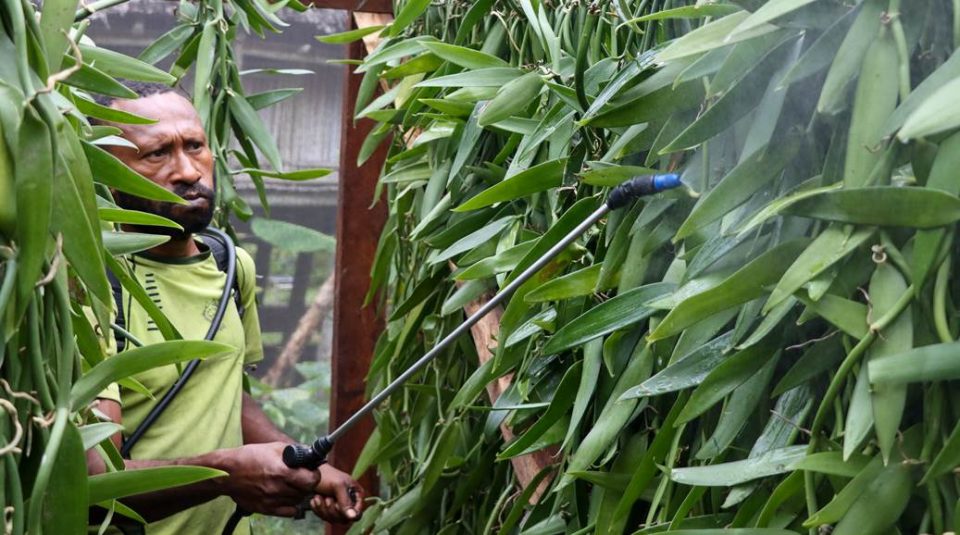Food and Agriculture Organization of the United Nations (PNG) is supporting over 1,500 vanilla farmers with 60,000 disease free vanilla vines for imported production and upscaled livelihood in PNG.
According to a statement released by FAO, this is in their hopes to increase the quality and quantity of PNG vanilla.
As per FAO PNG, Sepik region of Papua New Guinea has a uniquely favorable agro-ecological environment for vanilla cultivation. The area also has a longstanding tradition in vanilla production which thousands of rural households depend on to support their well-being.
“Vanilla is the lifeline for many rural families, and FAO under the EU-STREIT PNG Programme, takes this initiative to support vanilla farmers and train them to adopt climate-smart practices, so that they can increase production to support their livelihoods from income derived from vanilla,” explained Rabi Rasaily, the FAO Senior Agricultural Officer.
The Programme aims to source and provide 250,000 healthy vanilla vines to the farmers in the Sepiks. The most recent part of distribution were 10,000 vanilla cuttings from Karawari LLG of Angoram District, one of the areas identified and selected as disease-free, that were transported down the Sepik River to Mandi Village, Turubu LLG of Wewak District, East Sepik Province.
The vines were then treated by FAO-STREIT technical officers in a treatment shed established by the EU-STREIT PNG using “an insect repellent bio-solution developed by the Programme from basic materials such as Ginger and Garlic,” explained Nanda Siri, the FAO Vanilla Production Officer. Once treatment is done, the vanilla cuttings are distributed to female and male farmers operating under business groups supported by the Programme.
The beneficiaries have undergone capacity-building trainings, including climate-smart agriculture practice as well as being supported with tools and equipment to improve their cultivation, husbandry and processing techniques.
This was the sixth distribution of healthy vanilla vines totalling 60,000 so far. Farmers who have already received healthy cuttings are from Missim Village in Ambunti-Drekikier District, and Albinama and Amon Villages in Maprik District, all in East Sepik Province.
Benefitting farmers have already commenced cultivation of treated vanilla vine cuttings in their blocks. “We’re happy and looking forward to harvesting healthy beans,” said Jude Gamo, one of the leading vanilla farmers in Mandi village, while receiving treated vanilla vines during the distribution.
In recent years, vanilla farming has been become widespread throughout the country. And as this farming practice increases and benefits local communities, it is timely to support local farmers through this initiative.


